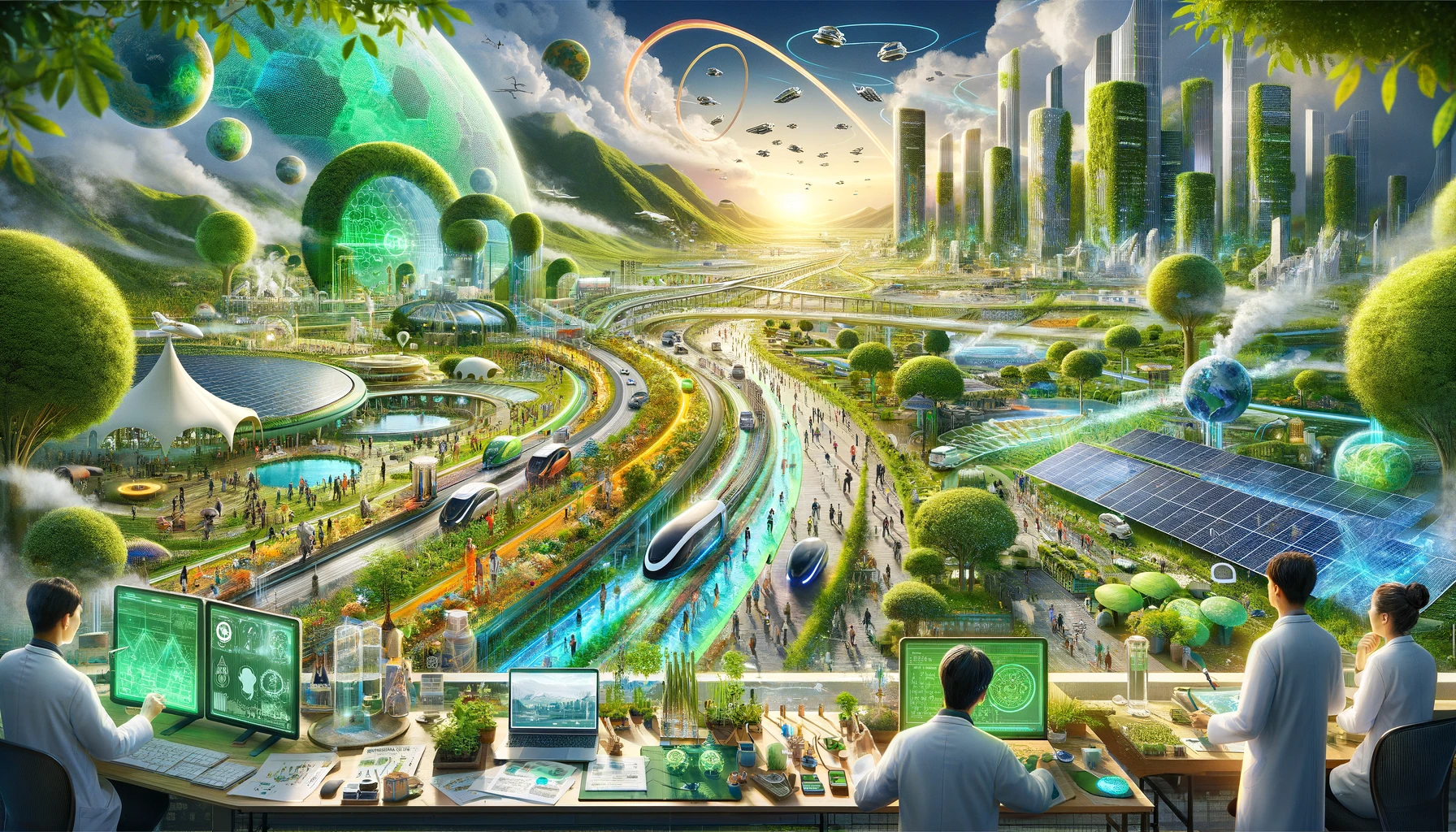As we step into 2024, the world is witnessing an unprecedented eco-revolution, a global shift towards sustainability that is reshaping economies, societies, and the environment. The initiative “Sustainable Futures 2024” embodies this transformative journey, championing innovative solutions and collaborative efforts to foster a more sustainable world.
Driving Forces of the Eco-Revolution
This eco-revolution is fueled by several key drivers:
- Technological Innovations: Breakthroughs in green technologies are pivotal. Renewable energy systems, sustainable agriculture technologies, and eco-friendly materials are reducing our carbon footprint and enhancing resource efficiency.
- Policy Reforms: Governments worldwide are implementing progressive environmental policies, setting ambitious targets for carbon neutrality, and investing in sustainable infrastructure.
- Corporate Sustainability: Businesses are increasingly adopting sustainable practices, driven by consumer demand, regulatory pressures, and a recognition of the long-term benefits of environmental stewardship.
- Public Awareness: Heightened public awareness and education about environmental issues are leading to more sustainable lifestyle choices and increased advocacy for policy changes.
Key Areas of Focus in Sustainable Futures 2024
“Sustainable Futures 2024” focuses on several critical areas:
- Renewable Energy Transition: Accelerating the shift from fossil fuels to renewable energy sources is crucial for reducing greenhouse gas emissions.
- Sustainable Urban Development: Creating green cities with sustainable transport, energy-efficient buildings, and green spaces is essential for improving quality of life and reducing urban environmental impacts.
- Circular Economy: Emphasizing a circular economy that promotes recycling, reusing, and reducing waste is fundamental for sustainable production and consumption.
- Biodiversity Conservation: Protecting and restoring ecosystems and biodiversity is vital for maintaining ecological balance and the benefits they provide to humanity.
- Climate Resilience: Enhancing resilience against climate change impacts through adaptive and mitigation strategies is necessary for vulnerable communities.
Challenges and Opportunities
While the journey towards a sustainable future is challenging, involving complex socio-economic and political factors, it also presents vast opportunities for innovation, economic growth, and enhanced well-being.
Corresponding Sustainable Development Goals (SDGs)
“Sustainable Futures 2024” aligns with several United Nations Sustainable Development Goals (SDGs), particularly:
- SDG 7 (Affordable and Clean Energy): Promoting renewable energy sources.
- SDG 11 (Sustainable Cities and Communities): Fostering sustainable urban environments.
- SDG 12 (Responsible Consumption and Production): Advocating for circular economy principles.
- SDG 13 (Climate Action): Addressing climate change and its impacts.
- SDG 15 (Life on Land): Protecting and restoring terrestrial ecosystems.
Conclusion
“Sustainable Futures 2024” represents a beacon of hope and a call to action for individuals, communities, businesses, and governments to actively participate in this global eco-revolution. It is a journey towards a sustainable world that is not only possible but essential for the survival and prosperity of future generations.
References
- “Global Renewable Energy Trends.” International Renewable Energy Agency. Trends in Renewable Energy.
- “Sustainable Cities Report 2024.” World Bank. Report on Urban Sustainability.
- “Advancing the Circular Economy.” Ellen MacArthur Foundation. Insights on Circular Economy.
- “Global Biodiversity Outlook.” United Nations Environment Programme. State of Biodiversity.
- “Climate Resilience Initiatives.” Climate Resilience Network. Strategies for Climate Resilience.
- United Nations Sustainable Development Goals. UN SDGs Overview.


